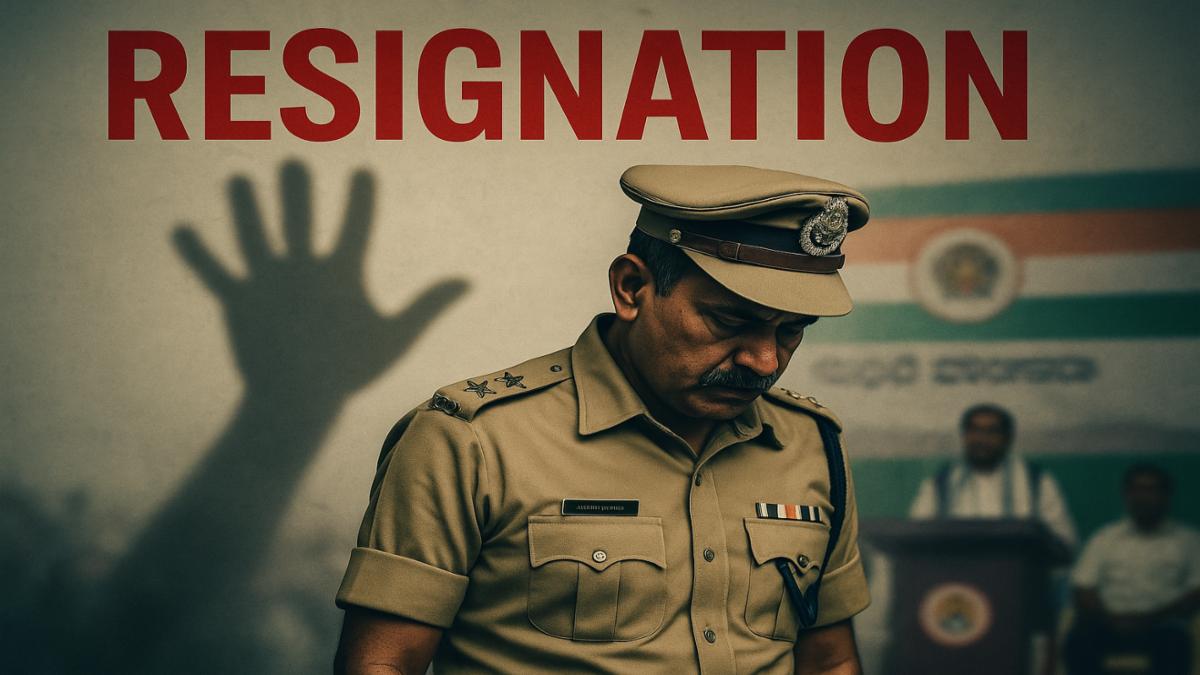Article Body
Dharwad: Dignity, Disturbed
In the weeks following his quiet but powerful resignation, Additional Superintendent of Police Narayana V. Bharamani has finally broken his silence—and his words are as heavy as the moment that sparked them.
"I was shocked," Bharamani told in his letter, referencing the public humiliation he faced when Karnataka Chief Minister Siddaramaiah raised his hand and yelled at him during a political rally in Belgaum. "My family was disturbed. I did not know what to say or how to face them."
Those weren’t just words. They were the silent echo of a man known for courage, now confronting something far more personal: public disrespect.
The incident, which occurred during a Congress protest where tensions between BJP workers and ruling party leaders escalated, saw Siddaramaiah lose composure on stage. Unable to spot the district SP amid the commotion, he called Bharamani up, then shouted at him, “Where is the SP?”—accompanied by what many described as an “aggressive” raised hand.
That moment, captured in countless photos and videos, left Bharamani humiliated—not just in front of politicians and officers, but in front of his own conscience.
Not Just a Name in Uniform
Bharamani isn’t just another police officer. He’s a decorated encounter specialist from the 1994 batch, known for leading the high-stakes operation that neutralized Praveen Shintre in 2007. He has served in critical zones like Bidar, Hubballi, and Gadag, earning a reputation as a no-nonsense officer who always kept his cool—even when others didn’t.
Ironically, it was the one time someone else didn’t keep their cool that broke his silence and his spirit.
"This wasn’t just an insult to me,” Bharamani reportedly told a close associate. “It’s a message to every officer watching—your dignity is only as safe as the next angry politician on stage.”
The Resignation Heard Across Ranks
The officer’s decision to take voluntary retirement has now become more than a personal act—it’s a political flashpoint. The Chief Minister’s office has avoided direct comment, and Congress allies have downplayed the event as “overblown.” But social media tells a different story.
“ASP Bharamani deserved better. The way he was treated on stage was disgraceful,” read one trending post on X.
Another user wrote, “When protectors of the law are treated like pawns, you know something’s wrong.”
A Larger Question: Where Does Respect Begin?
This isn’t the first time Indian police officers have been caught between protocol and politics. But Bharamani’s case strikes a deeper chord. Here was a man with a near-flawless record, quietly taking the blow and choosing dignity over conflict. His silence spoke, and now his voice confirms what many suspected: the damage wasn’t just professional—it was personal.
Whether his resignation is accepted or contested remains to be seen. What’s clear, however, is that Bharamani has set off a larger conversation—one about the dignity of uniformed officers, the limits of political conduct, and the emotional cost of public service in today’s India.

Comments